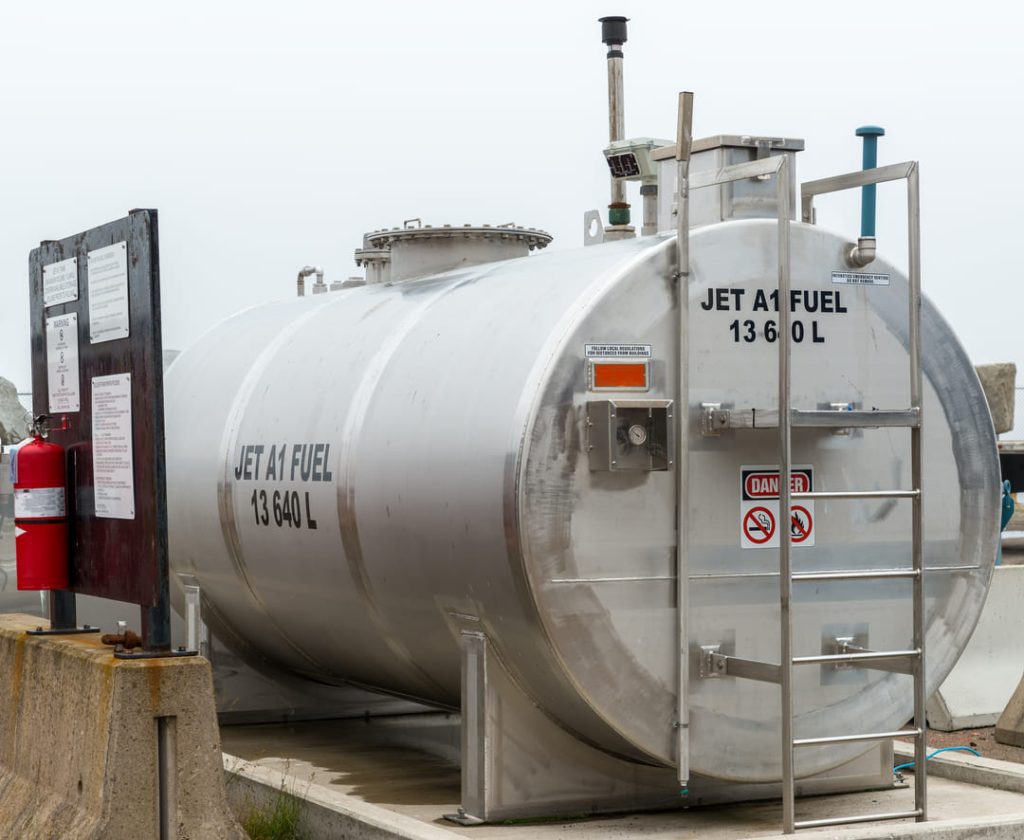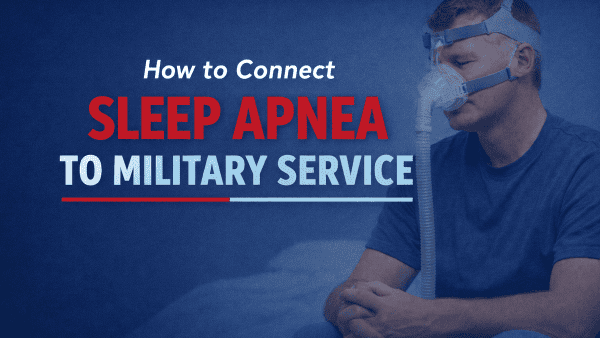Looking for Expert-Level VA Claim Answers?📱Call Us Now! 737-295-2226
Each day, brave service members put their lives on the line to defend our country. Unfortunately, this kind of service often exposes individuals to toxic substances, such as jet fuel (JF).
Exposure can lead to long-term physical and psychological health issues that can last a lifetime.
In this guide, we examine how veterans can qualify for VA benefits for exposure to jet fuel.
Let’s get started.
Table of Contents
Summary of Key Points
- VA Benefits Eligibility: Veterans exposed to jet fuel can access VA disability benefits by documenting their condition, proving service connection, and showing the impact of jet fuel exposure.
- Filing a VA Claim: To file a VA claim, veterans need a medical diagnosis, proof of in-service exposure, a nexus linking the condition to the exposure, and evidence of symptom severity, such as medical service records.
- Health Risks: Jet fuel exposure can cause immediate symptoms and severe long-term conditions, including cancer and neurological disorders.

You DESERVE a HIGHER VA rating.
Take advantage of a VA Claim Discovery Call with an experienced Team Member. Learn what you’ve been missing so you can FINALLY get the VA disability rating and compensation you’ve earned for your service.
Getting VA Benefits for Exposure to Jet Fuel
If you believe your health issues are due to your military service-connected exposure to jet fuel, it’s critical to document your condition and learn how to file for the benefits you deserve.
Veterans exposed to jet fuel may be eligible for VA disability benefits. VA disability compensation is a tax-free, monthly payment that you receive based on your service-connected disabilities. You can use our VA disability calculator to determine how much your monthly benefit could be worth.
The biggest obstacle to overcome in winning your VA claim for toxic jet fuel exposure will be proving service connection or that your current disability or illness is related to your military service.
VA Jet Fuel Exposure & Service Connection
To win your VA claim, get a disability rating and receive benefits from the Department of Veterans Affairs (VA), you need four essential elements to prove service connection:
- A medical diagnosis of a condition related to your exposure
- Evidence of an in-service event, injury, disease, or aggravation (in this case, how you were exposed to jet fuel)
- The link (or nexus) between your condition and jet fuel exposure through medical evidence
- Documented severity of your symptoms, including frequency, severity, and duration
Unfortunately, there are no medical tests to prove if you were exposed to propulsion fuel. The VA requires veterans to provide valid evidence for the VA to grant benefits for any condition.
PACT Act Jet Fuel Exposure
Jet fuel exposure is covered under the PACT Act. Signed into law in 2022 the VA PACT Act expands benefits for veterans exposed to toxic substances, including jet fuel. It directs the VA to recognize and provide compensation for conditions related to such exposures.
Conditions linked to jet fuel exposure that may be covered include respiratory issues (like asthma and COPD), certain cancers (such as lung cancer), and chronic skin conditions.
You still must prove through medical evidence that it is more likely than not that your exposure resulted in your current condition and was caused or aggravated by your JF exposure.

What is the Jet Fuel Exposure Recognition Act?
The 2021 Jet Fuel Exposure Recognition Act addresses health issues from jet fuel exposure for veterans and military personnel. It requires the VA to recognize and compensate health problems related to jet fuel and provides a framework for medical evaluations and support for those affected.
Nexus Letter for Jet Fuel Exposure
Right now, a nexus letter from a qualified physician familiar with the VA’s practices is one of the best ways to improve your chances of being granted service connection and winning VA benefits for exposure to jet fuel.
It’s crucial to gather medical records and other documents that may help prove the connection between your injury, illness, or medical condition and the exposure to jet fuel during your military service. You’ll want to discuss whether you inhaled, absorbed through your skin, or ingested jet fuel, as well as how frequently the exposure occurred.
Methods to help prove that an in-service event occurred include:
- In-service medical records
- Private medical records
- Military performance reports
- Daily staff journals
- Military occupation evidence
- Hazard pay records
- Unit and organization histories
- Job qualification system – duties and descriptions of your daily job requirements
- After action reports (AARs)
- Monthly summaries and morning reports
Once you have successfully filed and won your VA claim, you’re eligible for various VA benefits for exposure to jet fuel. These may include access to no-cost VA healthcare, travel pay, VA home loan benefits, preference for state and federal jobs, access to employment services, and more. You can read our full list of benefits by VA percentage rating to determine eligibility.
File a VA Disability Claim to Receive VA Disability Benefits
VA jet fuel exposure is a significant issue affecting many veterans today who have served our country honorably and selflessly over the years.
Veterans suffering from health effects due to service-related exposures should seek medical care and attention immediately.
Winning your VA disability claim can provide VA disability benefits and compensation. This can help you offset any long-term treatment costs associated with your condition(s).
How Jet Fuel Impacts Veterans
Exposure to these dangerous chemicals can cause serious long term health concerns. Military personnel serving in Vietnam and Korea may have prolonged exposure to the highest levels of these hazardous materials. Let’s examine the short and long-term health considerations.
What health problems can jet fuel cause for veterans?
Exposure to JF can cause a range of short and long-term health issues to your blood, brain, central nervous system, skin, and eyes. In the short term, such exposure can cause various adverse health effects.
Jet Fuel Exposure Syndrome
Jet fuel exposure syndrome symptoms include:
- Dizziness
- Headaches
- Nausea
- Throat irritation
- Eye irritation
- Skin irritation
- Respiratory issues or difficulty breathing
- Fatigue
- Sleep disturbances
Long-Term Effects of Jet Fuel Exposure
Long-term exposure may cause more severe conditions to develop. Jet fuel exposure syndrome symptoms may not arise for years or even decades until the exposure is over and veterans are discharged from service. These long-term health conditions include increased cancer risk and other life-altering severe disabilities.
For a veteran suffering from exposure, there are many different health problems associated with JF.
Military Jet Fuel Exposure and Cancer
Increased cancer risk is one of jet fuel exposure’s most severe long-term effects. Brain tumors and a higher risk of kidney cancer have been linked to chronic jet fuel exposure.
There have been limited studies on the impacts of fuel exposure and cancer development. Providing as much in-service medical evidence as possible will help you prove service connection for any cancers that may have developed due to jet fuel exposure.
Hearing Problems
Jet fuel can also cause hearing problems. The chemicals and additives in jet fuel have been linked to an increased risk of noise-induced hearing loss, tinnitus, impaired hearing, and other related conditions.
Sleep Apnea and Jet Fuel Exposure
Is sleep apnea related to jet fuel exposure? Yes, jet fuel exposure has been linked to an increased risk of sleep apnea in veterans. When inhaled, the molecules in JF can accumulate inside the body and travel to the lungs, where it can damage airways and cause restricted airflow during sleeping hours. This decreases oxygen levels in the blood and makes breathing difficult.
The disruption of regular breathing patterns creates an uninterrupted cycle of shallow and deep breathing, resulting in sleep apnea. If left untreated, this condition can lead to other serious health complications, such as heart attack and stroke.
Read our guide to getting a VA disability rating for sleep apnea to learn more.
Asthma
Jet fuel exposure has been linked to an increased risk of asthma in veterans. Inhaling the chemicals and fumes from jet fuel can irritate and inflame the airways, leading to difficulty breathing.
Over time, this inflammation can worsen, causing coughing, wheezing, chest tightness, and other respiratory issues. Veterans who develop sleep apnea due to toxic JF exposure are more likely to develop asthma.
Parkinson’s Disease
Veterans exposed to jet fuel may also be at an increased risk for Parkinson’s disease. Jet fuel contains several neurotoxins that can damage the central nervous system and cause neurodegenerative diseases such as Parkinson’s.
Symptoms of Parkinson’s include tremors, stiffness, and difficulty with balance and coordination. Since this condition often worsens over time, keep in mind you may want to be re-evaluated for a higher VA rating.
Read our guide to winning your VA claim for Parkinson’s disease to learn more.
Alzheimer’s
Exposure to jet fuel may also increase the risk of Alzheimer’s. The neurotoxins in JF can damage brain cells, leading to memory loss and deterioration, common characteristics of Alzheimer’s disease.
Dementia
Dementia can also be a result of jet fuel exposure. These chemicals and toxins can damage the brain and impair cognitive functioning, leading to memory loss, confusion, difficulty speaking and understanding language, and other related issues.
Peripheral Neuropathy
Some veterans may suffer from peripheral neuropathy in their extremities due to direct contact with fuel chemicals during maintenance operations. This disorder affects the nerves outside the brain and spinal cord, leading to numbness, tingling, and pain in the extremities.
Read our article on nerve damage to learn more about filing a VA claim.
See also: 5 BEST Tips to Get a VA Rating for Peripheral Neuropathy
Other Neurological Problems
Selected military fuel vapors can also lead to other neurological problems, such as seizures, headaches, dizziness, and fatigue. The body’s accumulation of toxins over time can cause these symptoms.
Depression is also associated with JF exposure, especially for veterans exposed over a long time.
Cardiovascular Disease
Toxins from jet fuel have also been linked to an increased risk of cardiovascular disease. These chemicals and toxins can damage the heart, leading to blood disorders, coronary artery disease, hypertension, arrhythmias, and stroke.
What is in Jet Fuel?

There are several different types of military fuels. When it comes to jet fuel, most are shortened to JP with a number designation indicating the type of jet fuel. JP stands for jet propulsion fuel.
The primary jet fuels: JP-4, JP-5, JP-7, and JP-8, are aviation fuels used in military aircraft. These fuels contain high concentrations of many hazardous materials, such as benzene, xylene, and formaldehyde—all known carcinogens and neurotoxins which cause harm the body and nervous system. These chemicals can cause serious health concerns over time if inhaled or ingested.
Usually, veterans who served on active duty around aviation or on aircraft carriers are most at risk for exposure to jet fuels. This is only sometimes the case. When fuel is combusted, it produces vapors that can travel far distances and be inhaled. Even if you never came into direct contact with jet fuel, you could be impacted by these toxic fuels. Let’s cover the most common types of jet fuel.
Common Types of Jet Fuels
Air Force Jet Fuel: JP-8
The Air Force typically uses kerosene-based JP-8 fuel. This is a complex mix of hydrocarbons and other chemicals like benzene, toluene, ethylbenzene, xylene, sulfur compounds, and arsenic. When these substances are inhaled or absorbed through the skin, they can cause significant negative health impacts.
Navy Jet Fuel: JP-5
The Navy primarily uses JP-5 since it is generally considered safer onboard ships. JP-5 is a similar blend of hydrocarbons but with lower concentrations of sulfur compounds and other additives.
Both are very toxic chemicals if inhaled, end up on your skin, or are accidentally swallowed.
Conclusion
If you’ve been exposed to jet fuel during your military service and your exposure has caused health conditions, you may qualify for VA disability benefits and compensation.
Acting quickly can help you get the benefits and support you need for your health issues. If you think your health problems are due to jet fuel exposure, file a VA claim to get the benefits that can assist with your long-term care and well-being.
NEED MORE ASSISTANCE?
Most veterans are underrated for their disabilities and, therefore, not getting their due compensation.
At VA Claims Insider, we help you understand and take control of the claims process so you can get the rating and compensation you’re owed by law.
Our process takes the guesswork out of filing a VA disability claim and supports you every step of the way in building a fully-developed claim (FDC).
If you’ve filed your VA disability claim and have been denied or have received a low rating—or you’re unsure how to get started—reach out to us! Take advantage of a VA Claim Discovery Call.
Learn what you’ve been missing—so you can FINALLY get the disability rating and compensation YOU DESERVE!



